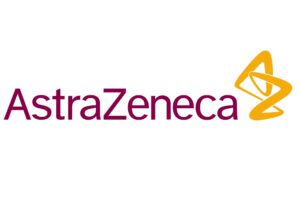DESTINY-Breast11 Study
Therapy with antibody-drug conjugate alone or before chemotherapy plus antibodies compared to chemotherapy plus antibodies in high-risk patients with early-stage HER2-positive breast cancer
Study recruitment was completed in March 2024.
The DESTINY-Breast11 is a randomized, open-label, Phase 3 study on neoadjuvant therapy. Randomized means that treatment assignment is random. Open-label means that both the patient and the study center know the treatment arm, and neoadjuvant refers to medical treatments before surgery. Three different medical treatments (3 “study arms”) are compared in this study. In one study arm, an antibody-drug conjugate is administered. A chemotherapeutic agent is firmly linked to an antibody. This hybrid drug is absorbed by the tumor cell. Subsequently, the chemotherapeutic agent is released inside the tumor cell, thereby destroying the tumor cell. In the second study arm, this antibody-drug conjugate is administered followed by chemotherapy with antibodies. In the third study arm, for comparison with the other two study arms, a classical chemotherapy combined with two antibodies is used (“control arm”). This third treatment arm corresponds to the current standard therapy.
What is being investigated in this study?
In HER2-positive breast cancer, tumor cells show an above-average concentration of a protein called HER2 (human epidermal growth factor receptor). The current standard treatment for HER2-positive breast cancer that can be surgically removed is a combination of the antibodies Trastuzumab, Pertuzumab, and chemotherapy (control arm), followed by surgery. Even after this treatment, breast cancer can recur, which is why better treatments are being sought.
The DESTINY-Breast11 study investigates whether treatment with the antibody-drug conjugate Trastuzumab deruxtecan (T-DXd), either alone or followed by chemotherapy with antibodies, can prevent cancer recurrence. The complete eradication of all tumor cells by medication before surgery (pathological complete remission) indicates that the cancer is less likely to recur.
What is the goal of the study?
The primary goal of this study is to investigate whether treatment before surgery with Trastuzumab deruxtecan, with or without additional chemotherapy and antibodies, more frequently eradicates all tumor cells than standard therapy.
How is the study conducted?
Within the study, there are three treatment arms to which patients are randomly assigned in a 1:1:1 ratio:
Arm 1:
Trastuzumab deruxtecan – intravenous injection every 3 weeks for 8 cycles
Arm 2:
Trastuzumab deruxtecan – intravenous injection every 3 weeks for 4 cycles, followed by combination therapy with: weekly chemotherapy (Paclitaxel) + antibodies (Trastuzumab + Pertuzumab) every 3 weeks for 4 cycles
Arm 3:
Chemotherapy (Doxorubicin + Cyclophosphamide) every 2 weeks for 4 cycles, followed by combination therapy with: weekly chemotherapy (Paclitaxel) + antibodies (Trastuzumab + Pertuzumab) every 3 weeks for 4 cycles
Are there any risks?
You will be informed about potential risks or side effects associated with participation during an informational discussion.
Eligibility Requirements
Men and women aged 18 years or older can participate in this study, with:
- Operable early-stage breast cancer that has not been previously treated
- HER2 receptor-positive tumor
- Hormone receptor-positive (estrogen and/or progesterone receptor-positive) or hormone receptor-negative
In addition, there are other criteria that must be met for participation in the study. Interested patients should speak with the investigators at a study center to determine if this study is suitable for them.
This study is supported by:


